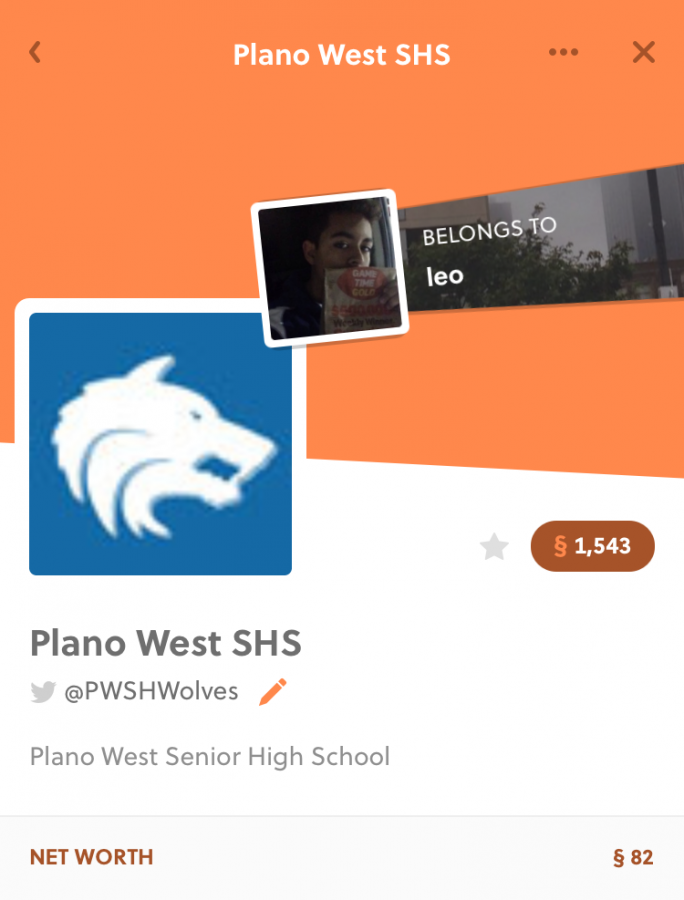Stolen! The Addictive App That Let People Steal Twitter Users With Secret Codes
Screenshot of the Plano West Twitter on the now-defunct Stolen! app.
February 23, 2016
For some, trading cards represents a nostalgic part of childhood. From Pokémon to baseball, collecting cards was an enjoyable activity to pass the time. Fast forward to Dec. 2015 and revisit the idea of collecting personalities. Thanks to the company Hey Incorporated (Inc.), it became possible to “own” Twitter profiles like trading cards through a game called Stolen!, which was available only for iPhones on the Application Store, or App Store, until January 14 when it was removed.
Although organized like a stock market, the concept of the app was fairly simple. Players started off with $500,000 of virtual currency (additional coins could have been purchased in game), which were then used to “steal” Twitter users from other players. Any account, from Selena Gomez to Plano West, was up for grabs. Every time an account was stolen, their cost increased. As time passed, the cost decreased. At the time of writing, Taylor Swift was the most expensive person on Stolen!, valued at $83,102,106.
According to users’ reviews, the app was very addictive. Siqi Chen, the CEO of Hey Inc., did not expect the app to become as popular as it did. The game was so well-liked that it even reached the screens of celebrities, such as Vine star Jerome Jarre, an active player, along with the CEO of Twitter himself, Jack Dorsey. The only way to access the app was through an invite code. Every player started off with only one, which made them a rare commodity. Codes were sold to those wanting to play the game on sites like eBay and PayPal. Hundreds of Twitter accounts dedicated to giving out fake codes were also created as a result of the app’s success.
Stolen! was released in late December, having been in development for about two months. It was inspired by a Facebook game called Friends for Sale, which was also created by Chen. Both of the games share the common idea of “buying” their friends.
While good came from the game’s rising popularity, there were some negative side effects as well. The official Stolen! Twitter account was hacked in early January, tweeting fake invite codes and a warning that the game would steal users’ personal information. While this was a bump in the road for Hey Inc., they quickly regained control and apologized for the hack.
Unfortunately, however, the app was shut down after Hey Inc. received a letter from Massachusetts Congresswoman Katherine Clark, who worried that the app would contribute to cyberbullying and harassment. The developers apologized for any harm that their app may have caused and decided it was best to move on with other ventures. Stolen’s small period of popularity shows how quickly apps can decline in favor.




